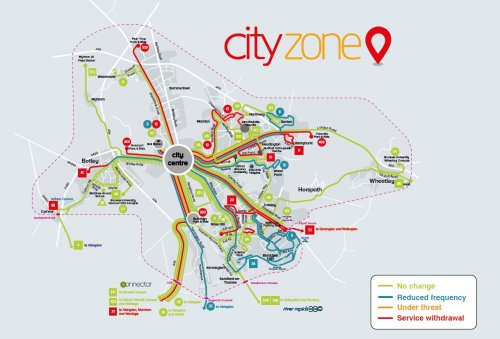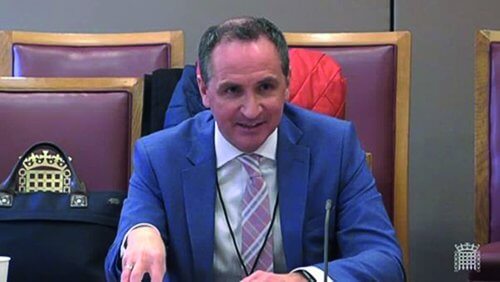
Oxfordshire bus operators issue an urgent appeal for further Government recovery funding to avoid significant cuts to services.
Oxford Bus Company and Thames Travel have spoken out with a warning that if Government funding support is not extended in April, they will have to reduce their respective networks by between 20% and 30%. It could include the withdrawal of Oxford’s entire network of park & ride services, some Oxford City services and certain rural services.
Funding via the Coronavirus Bus Service Support Grant (CBSSG) and then via the Bus Recovery Grant (BRG) enabled operators to provide service levels at least 90% of pre-pandemic service levels. However, current patronage across the bus network is reported to be at around 70% of pre-pandemic levels.
Government funding runs out on 5 April and there has not yet been confirmation whether further support will be provided for operators in England. Currently operators must give 35 days’ notice to alter or withdraw services, meaning they must finalise plans to make any changes no later than 25 February. Oxford Bus Company and Thames Travel said they have made contingency plans to ‘right size’ their extensive networks to match the 70% of pre-pandemic demand that currently exists.
Phil Southall, Managing Director of Oxford Bus Company and Thames Travel said: “There is a real threat we will have to reduce services by around 20% to 30% in three weeks’ time. We are on a cliff edge and at a time when people need services to return to work, education and leisure activities it is absolutely critical government extends its support.”
In addition to the withdrawal of Bus Recovery Grant funding, the Department of Transport has issued guidance to local authorities indicating emergency funding for concessionary travel to operators can be reduced from 1 April. The funding is used for operators to carry eligible passengers for free such as senior citizens. Oxfordshire County Council has paid 100% of the funding to bus operators to date. However, this could now be reduced to 65% of pre-pandemic levels over the next 12 months or so, even though it will continue to receive 100% from Government.
Phil added: “This is a call to action to help us avoid having to reduce our network and the devastating impact it will have on the community, which obviously we want to try and avoid. We’ve written to our local MPs and asked them to help to avert this crisis. Like all bus operators in the UK, we need the Government to extended Bus Recovery Grant funding by another six to nine months while we seek to continue to rebuild patronage.
“Furthermore, we need Oxfordshire County Council to continue to pay us 100% of pre-pandemic levels for carrying concessionary passengers. This would enable some services under threat to continue, even if Bus Recovery Grant funding is withdrawn.
“We have shown great agility to respond to changing demands during the pandemic. But a significant reduction in routes and timetables risks harm to our local economic recovery, environment, public health and social inclusion. Without funding we must create ways to be sustainable and survive. There is a lot of talk about levelling up and we need real action on it and fast from Government.”
Phil also gave evidence to the House of Lords’ Built Environment Committee on the future of public transport in towns and cities alongside Graham Vidler of the CPT, where he set out the opportunities to make buses and active travel the ‘natural first choice’ for urban travel, the role of bus priority, constraints on car use and how new innovations like mobility hubs could be used to encourage green travel.


